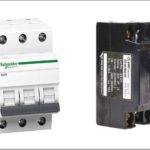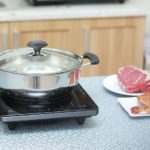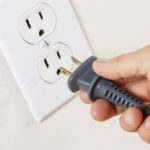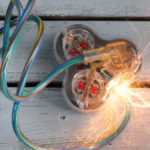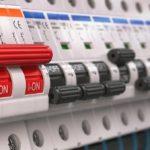
Installing electrical switching devices correctly.
To use electricity safely and efficiently, EVNHANOI recommends that customers take the following safety measures:
Install electrical switching devices correctly
One of the first electrical safety principles to implement is to pay attention to the correct installation of the circuit of electrical devices. When installing, you must install the switch or circuit breaker at the beginning of the main power line and the branch lines at different floors of the building.
In addition, it is necessary to install a fuse in front of the power outlets to cut off the electrical current in the event of a short circuit or overload, preventing electrical fires. The circuit breaker should be installed on the phase wire (hot wire), and ideally, both the phase and neutral wires.
Choose protective switching devices that are suitable for the power consumption, with securely covered electrical parts. It is recommended to also install a device to prevent electric shocks to avoid dangerous electrical incidents, especially in flooded areas.
Select the location for switches, fuses, and electrical outlets
To ensure safety when using electricity in the home, the location for switches, fuses, and electrical outlets should be at a high and convenient position. For households with small children or located in areas prone to flooding, it is advisable to install them at least 1.4 meters above the ground and floor level.
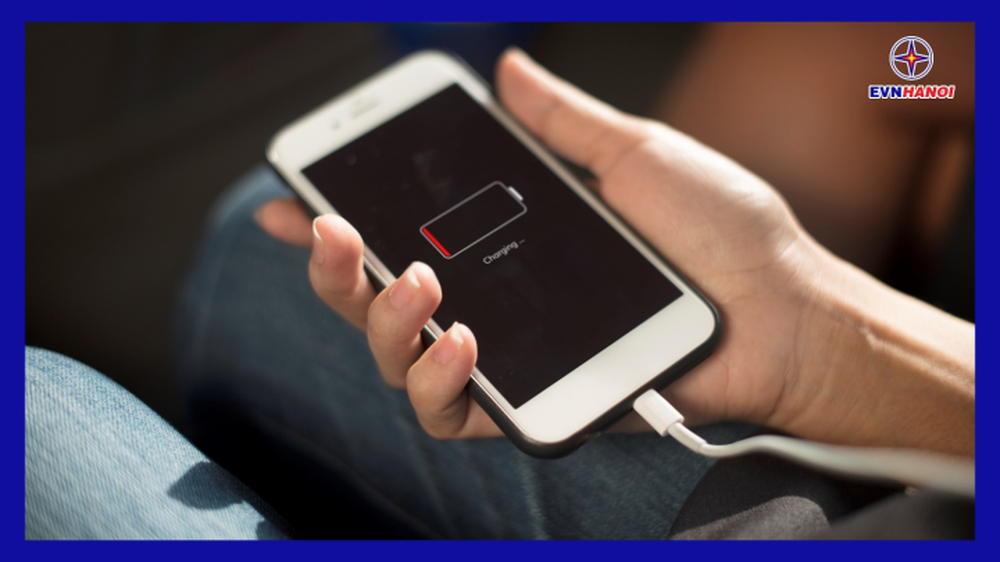
Avoid using electrical devices while charging.
Avoid using electrical devices while charging
Avoid using mobile phones while they are being charged. After charging, be sure to unplug them to prevent the risk of fire or explosion, especially in households with small children.
Avoid installing electrical devices in wet locations
Absolutely do not install electrical devices in wet or flooded areas. Do not place heat-producing electrical devices near flammable objects. It is necessary to ground the metal casing of household electrical appliances such as water filters, refrigerators, electric stoves, and washing machines to prevent electrical fires.
If possible, use non-electrical appliances. For example, modern water filters utilize advanced technologies and do not require electricity.
Use high-quality electrical devices
The electrical wires in the home must be placed in insulated conduits and use wires with insulated coatings and sufficient wire cross-sections to prevent overloading and potential fires. Do not use low-quality electrical wires, electrical devices, or appliances in the home.
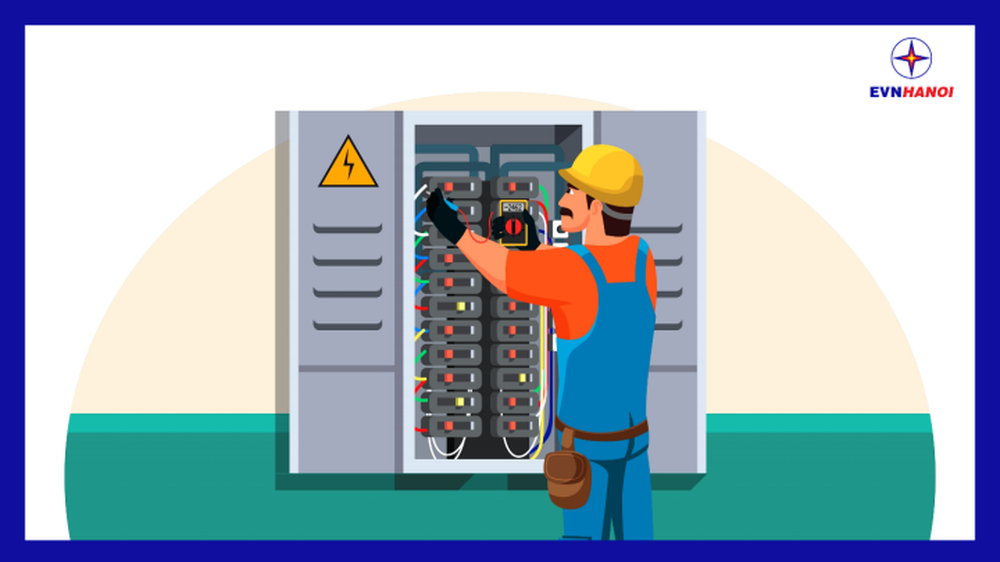
Regularly inspect power lines, switching devices, and electrical protection.
Regularly inspect the electrical system
During use, it is important to pay attention to electrical safety procedures. Regularly inspect power lines, switching devices, and electrical protection such as switches, fuses, power outlets, etc. Cut off the power supply to electrical devices when not in use to prevent fire, electric shock, or short circuits.
In case of broken or exposed electrical wires, or damaged electrical devices or appliances, they must be replaced or repaired before further use. If you want to perform DIY repairs, follow safety precautions or contact professional electricians for assistance.
Turn off the power during heavy rain or thunderstorms
In the case of heavy rain, thunderstorms, flooding, quickly disconnect the antenna cable from the TV to prevent the spread of lightning, unplug devices such as TVs, computers, etc. to cut off the power supply. If there is flooding, storm damage to the roof, or collapsing walls, cut off the circuit breaker to ensure safety.
Wear insulating gloves when operating the circuit breaker. Do not operate the circuit breaker with wet hands or excessive sweat.

Regularly maintain electrical devices
Regularly maintain electrical devices
Common household electrical appliances operate by directly or indirectly heating heating wires. If the products are of poor quality or improperly assembled, they can be very dangerous. Regularly check and promptly repair or replace damaged electrical devices to prevent fire, electrical hazards, or fatal electric shocks.
If you want to maintain or repair household electrical devices without being sure of their safety or without proper protective equipment, you should not attempt to do it yourself. Contact professional electrical repair services for assistance.
According to VTC News
Tenants Offered Protection for Their Property During Tet Holiday
As the Tet holiday nears, renters are concerned about the potential loss or theft of their items in their rental rooms. To ensure their property is safe and secure, many are left wondering what steps they can take to prevent it. Learn what methods you can employ to protect yourself and your possessions while renting in this article!
Discovering and Fixing Electrical Leaks in the Home
With modern households requiring an ever increasing amount of electricity, it is more important than ever to be aware of the potential dangers posed by electric leakage. Don’t worry, though, as this guide will teach you all you need to know about testing and troubleshooting electric leakage in the comfort of your own home!
























